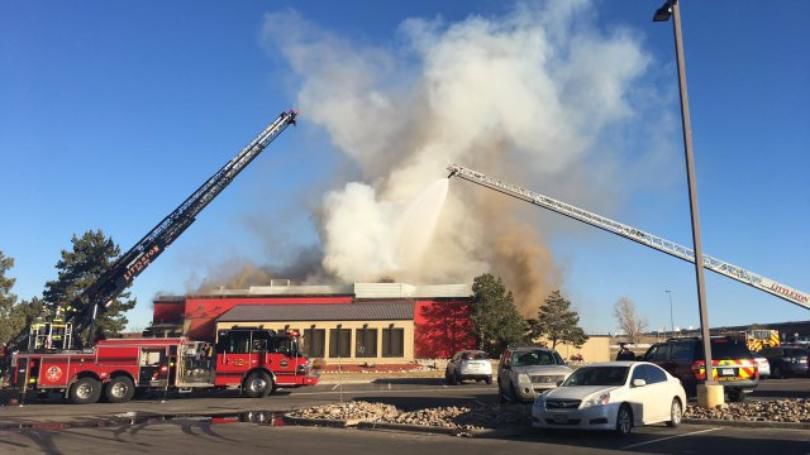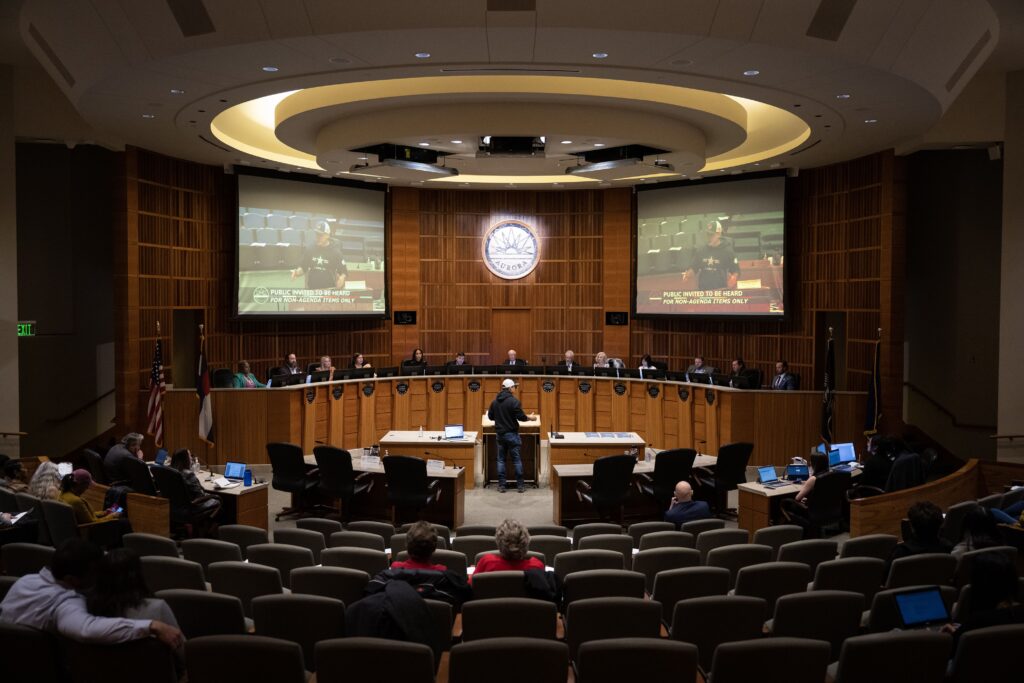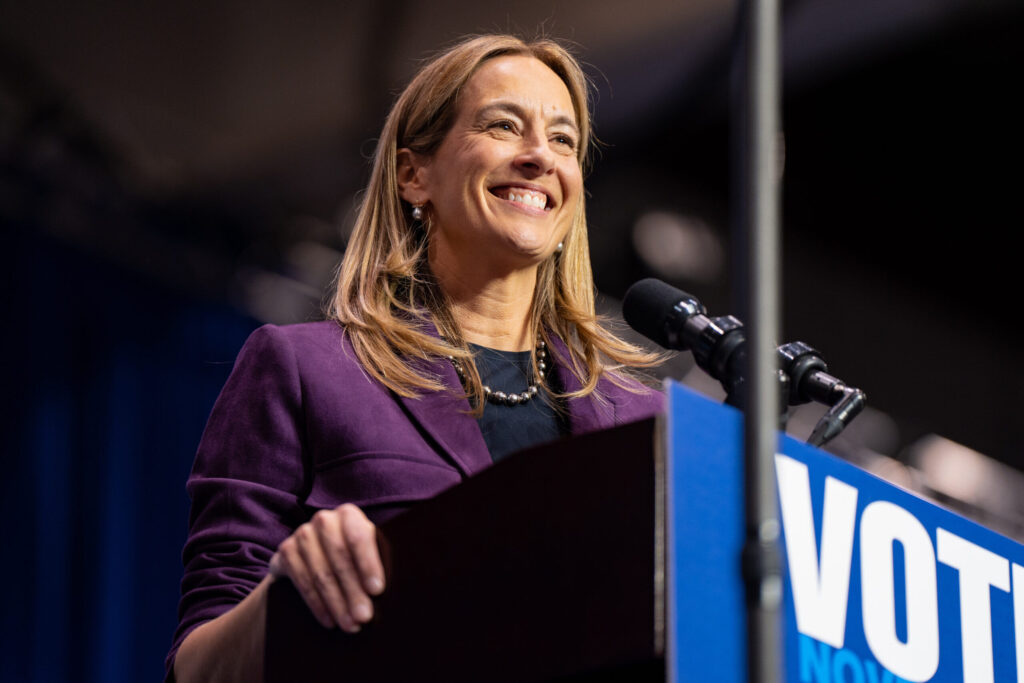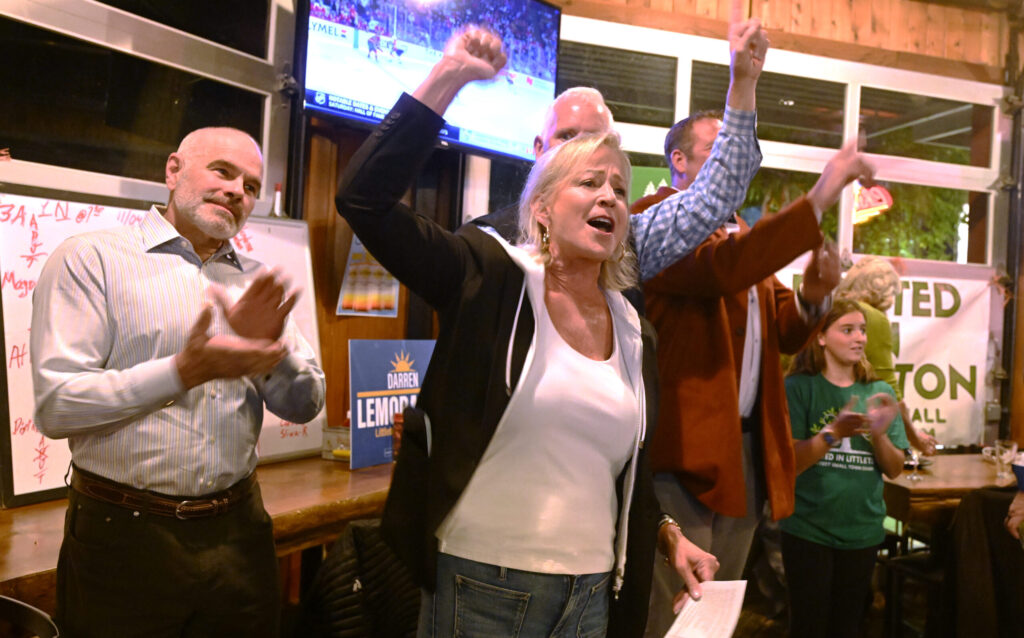Colorado Springs Mayoral candidate Q&A: Yemi Mobolade

Out of a field of 12 candidates, the race to be the next mayor of Colorado Springs is down to a runoff contest between Yemi Mobolade and Wayne Williams.
Ballots are out now, and due back to the city clerk’s office by May 16.
To better inform the public, The Gazette sent an expanded questionnaire to both candidates. Each candidate’s response was only lightly edited for formatting and clarity. Below are the answers provided by Yemi Mobolade. Wayne Williams’ questionnaire is available here.
There has been a lot of discussion in this election about the influence of the city’s developers on city policy, and the amount of money developers have given to candidates. If a developer like Norwood asks you for a favor, how would you respond? Would you meet regularly with developers and allow developers to influence city policy?
I am proud of the campaign that my team and I have run, that is, debt-free, completely crowdfunded, and not beholden to any entity or special interest group. I have broad support from every zip code and neighborhood in Colorado Springs. Nearly 1,500 donations from nearly 1000 unique donors, with an average donation of $360. This is in sharp contrast to my opponent who has 260 donations from 230 donors with an average donation of $2400. My campaign is a microcosm of how I will lead. I will be a mayor for all Colorado Springs residents, emphasizing transparency. The residents of our city deserve to know how their hard-earned taxpayer dollars are being spent, how projects get prioritized, and how different departments arrive at the decisions that impact the city as a whole.
What role do you think experience plays in this race? Yemi, you have never held political office before.?What do you think the disadvantages of political experience are?
In the words of President Reagan, “I am not a politician. I am an ordinary citizen with a deep-seated belief that much of what troubles us has been brought about by career politicians; and it’s high time that more ordinary citizens brought the fresh air of common sense thinking to bear on these problems.” Lifelong politicians fall prey to putting special interests and partisan politics over progress. We simply can’t afford to stay on that path. If we elect more of the same, we are accepting the problems of the last eight years – failing to move the needle. That’s not what our citizens want. President Reagan demonstrated that good leadership and a solutions-driven approach to governance doesn’t require experience on a ballot. Rather to approach the issues with “fresh eyes” and assemble the right people to solve our city’s challenges. That’s the experience I bring to the table.
Water is an increasing concern given the megadrought on the Colorado River. City Council has adopted an ordinance requiring 128% capacity for new annexations. At the same time, we are short 12,000 housing units in our region. Is 128% the right balance? If not, what measures would you take to balance water concerns with growth?
We must balance the tension of a growing community and the need for more housing with the demand for our limited water resources. Critics of the 128% ordinance have argued it is an anti-annexation plan, and not a water protection plan. I believe the 128% ordinance is a starting point for this crucial conversation focusing on the vulnerabilities of our limited water supply. Colorado Springs’ water policies must continue to be developed in relationship to a much-needed regional development plan since the impact of our city’s growth is not only a local issue, but also a regional one. As mayor, I will draw on my leadership experience from the private, nonprofit, and government sectors to create and implement AnnexCOS, an update of the City’s 2006 annexation policies, in order to establish the right framework for decisions concerning annexation of land into the city.
Should the city be more aggressive about converting to solar and wind and renewable power, or is it going too fast? Should the City Council continue to act as the city’s utilities board, or do we need a separate board at this stage in Colorado Springs evolution?
We must balance the tension of preserving Colorado Springs’ beautiful landscape and protecting our environment with keeping our energy bills low and affordable. Colorado state law mandates that we reduce carbon emissions 80% by 2030. The challenge before the city and its utilities board is to meet these requirements in a way that has the least possible impact on utility rates, while maintaining reliability. When you flip your light switch, you expect the lights to come on. When you turn on your furnace, you expect a warm home. The energy sources to provide these amenities are changing as the state and nation move toward more renewable energy. As an ad hoc member of the utilities board I will work to ensure that our energy conversion remains reliable and cost-effective.
Colorado Springs is still grappling with homelessness. Is the city doing enough right now to solve the problem of homelessness or does more need to be done? If elected mayor, how would you address homelessness going forward?
I have served on the Board of Springs Rescue Mission and attended nearly 90 campaign meet and greets. The most consistent feedback is the need to ensure the safety of our neighborhoods while also showing compassion and providing services to residents experiencing homelessness. The Colorado Coalition for the Homeless recently reported that 71 percent of people experiencing homelessness have a mental illness. Therefore my priorities as mayor include:
A. Boost the city’s partnerships with local providers that focus on mental health care.
B. Increase the number of permanent supportive housing options in our community through local partnerships, including Homeward Pikes Peak, Springs Rescue Mission, The Place, and other local providers.
C. Expand the city’s street behavioral health outreach programs to address encampments, enforce existing ordinances and explore the expansion of other additional ordinances, while ensuring our residents experiencing homelessness have access to the right care and services.
Do you think Colorado Springs should enforce its ban on homeless encampments more aggressively or less aggressively?
Homeless encampments are dangerous for residents’ physical health and present a number of environmental hazards, including fire dangers. Between January and February of 2023, the Colorado Springs Fire Department responded to about 300 homeless camp fires. In addition, homeless encampments present a public safety risk to both homeless residents and the wider community. Within a two-month time period in the fall of 2022, six homeless people were murdered, and in some cases by another homelessness resident.
Because camping is illegal within city limits, and because the safety of residents is my top priority, as mayor, I will compassionately enforce the city ordinances, using existing resources. The Homeless Outreach Team (HOT) has been serving homeless residents by providing information and referrals for food, shelter, housing, and other services. The Homeless Outreach Program (HOP) team members are trained behavioral health providers offering mental health treatment and connection to community agencies.
Can you outline specific steps you would take to address the city’s housing crisis?
Data Driven Economic Strategies reported in 2019 that 71% of the homes in Colorado Springs were affordable. Today only 18% of homes are affordable. As mayor I will support the development of diverse housing options and the preservation of affordable housing in Colorado Springs. Specifically, I will:
A. Work with philanthropy and foundations to establish a “missing-middle housing fund” to support housing innovation for residents that make $50k-$100K a year.
B. Expand the same tax rebates available to new corporations that move to town to include affordable and attainable housing projects.
C. Increase long-term funding and other incentives to decrease the cost of housing development and increase the supply of affordable housing.
D. Without adding any new city positions, I will appoint a Chief Housing Officer that bridges our public-private partnerships opportunities and advance our city’s housing priorities, including expediting attainable and affordable housing projects.
How would you stop Colorado Springs from becoming another Seattle, San Francisco or Portland – which have fallen on hard times in the past few years?
The referenced cities are often highlighted for two reasons: a homelessness crisis and rising crime. But here’s what I know, over the last four years the average new mortgage in our city has gone from $1,400 to $3,100. According to the housing opportunity index our housing affordability over the last four years has gone from 70% to 18%. It is harder for residents to afford a home in Colorado Springs than in Seattle or Boulder. In 2022, we experienced more homicides in Colorado Springs than Seattle, 125% over the last 4 years. And, our families are more likely to be the victim of violent crime in Colorado Springs than in Portland.
Colorado Springs already is becoming like Portland, San Francisco and Seattle. It seems the only way to change that is to elect new leadership to implement innovative and pragmatic solutions that will change this trajectory.
The military accounts for more than 40% of our economy. What relationship will you have with the bases and military personnel in our city? Will you try to make our region more attractive to military missions and bases, and if so, how?
We are fortunate to have these dedicated servants among us and we owe them our best support whether they are active duty, separated or retired, or if they even choose to call Colorado Springs home. While I was a VP at Chamber & Economic Development Corporation, I supported many of our local defense-oriented companies in areas of cybersecurity, aerospace, and space. As mayor, I will continue to support our defense economy by:
A. Partnering with the Chamber & EDC to expand and broaden our defense-related economic opportunities like Catalyst Campus, Space Symposium, DELTA Solutions & Strategies and Red Leg Brewing.
B. Retaining our military workforce. 250 to 400 military personnel are separating per month and retiring from our military base with the work ethics, skills, and the military clearance many of our employers need.
C. Promoting a welcoming city for military families, including employment support to military spouses, and support for our veterans.
What is the most pressing transportation issue Colorado Springs faces, in your opinion? What steps would you take to address it?
While Colorado Springs is a “car-dependent” city, there is increasing demand for public transportation to help meet the needs and demands of our growing community. The Pikes Peak region is expected to be just over one million people in 2045, approximately 50% more than in 2015. This expected growth will produce demand for new travel and public transit options. We already have a transportation shortage, disproportionately affecting low-income households, seniors, residents with disabilities, as well as Millennials and Generation Z residents who choose not to own a vehicle.
I will implement ConnectCOS, Colorado Springs’ long-term transportation plan which proposes dozens of sidewalk, trail, and bike projects, and the Bike Master Plan which promotes bicycling as one of many necessary transportation options. As the city grows, it is imperative that we pursue multi-modal transportation supporting the needs of all users including the public transit in the recently passed PPRTA tax extension.
What specific steps would you take to improve traffic safety in Colorado Springs, in light of the high rate of traffic fatalities we have recently been seeing?
With the exponential growth of our city, traffic crime is becoming one of the top public safety concerns from Colorado Springs residents. Therefore as mayor, I will work to improve the safety of our roadways. Specifically, I will:
A. Bolster recruitment efforts and improve morale to address our 70-person officer shortage. A fully staffed police department means more available officers to help address traffic enforcement and improve our incident response time.
B. Expand the city’s red light safety camera program to make it safer for pedestrians and residents in all transportation modes. The red light cameras help change driver behavior and improve traffic safety by reducing red-light running violations.
C. Leverage technology and data to enhance public safety, traffic flow, improve mobility, and count traffic patterns to help with traffic management.
D. Improve safety for pedestrians through reduction of vehicle lanes and adding school zones to help protect our high school students.
What should replace Martin Drake when it’s demolished?
I support a mixed-use redevelopment that will provide a variety of entertainment and recreational experiences. With Drake Power Plant located close to the confluence of Fountain Creek and Monument Creek, I am especially in favor of redevelopment that incorporates a waterfront revitalization. A thriving waterfront area with a river walk, kayaking, fishing, and other quality of life benefits is one of the last missing elements for a successful city infrastructure in Colorado Springs. This type of development has the potential to improve the health and aesthetics of the city, spark economic opportunities, and bring more people and energy to downtown Colorado Springs. That said, we know there is a great deal of work to be done to demolish the structures and evaluate the ground beneath. Any use would have to meet the US Environmental Protection Agency requirements, and that’s vital for our city’s safety and well-being.
Do you support the Front Range Passenger Rail? Please explain.
The state of Colorado is expected to increase 47% in population and a 51% in jobs by the year 2045. The expected growth in population and increase in jobs will put heavy demands on our existing transportation system thus creating the need for new travel and public transit options. A passenger rail connecting the majority of the Front Range cities including Colorado Springs, Pueblo, Denver, Boulder, and Fort Collins, will benefit Colorado Springs residents and the state at large. Because of this benefit, I support the Front Range Rail and believe it will help relieve traffic congestion, provide a new travel option for a changing demographic interest, reduce greenhouse gas emission, and foster statewide planning and partnership.
What do you think the relationship is currently like between the Colorado Springs Police Department and residents? Do you think this relationship can be improved, and how? Do you think the LETAC has been a beneficial resource for the city in the way that it bridges the gap between law enforcement and residents, and in its recommendations to City Council?
The last few years have been tough for our law enforcement officers. The scrutiny on incidents of improper use of force has resulted in better policing for all, however, political pressures have put undue stress on officers. Public sentiment and support for Colorado Springs Police Department (CSPD) is higher than most US cities, but there is still opportunity to promote community trust in CSPD, particularly among our minority residents. I will invest in and expand upon programs that encourage stronger relationships such as Police Athletic League, Illumination Project, and Play COS. I contributed to the development of a similar program, the Pikes Peak United Way’s Productive Dialogue. I will ensure that programs like this continue to unite our city. As mayor, I will welcome LETAC’s participation and stakeholder input as an advisory council to ensure a strong relationship of mutual trust between CSPD and our community members.
How do you plan specifically to address concerns about high rates of crime in Colorado Springs and public safety in general, including the shortage of police officers and firefighters?
To address crime and strengthen our public safety, I will improve incident response time by bolstering recruitment and providing a year-round training academy that runs simultaneous police recruit classes (instead of one at a time), since we have a 70-person officer shortage. I will also ensure we are closing the back door to prevent early retirements and to improve retention. l will do this by boosting morale with:
A. Recognition for exemplary performance
B. Leadership development and additional training
C. Encouraging work-life balance.
To prevent crime in our community, I will
A. Partner with policymakers and nonprofit providers focusing on expanding mental health care and substance abuse treatment to the community.
B. Provide economic opportunities through programs like Thrive Network and Transforming Safety project which supports community programs to prevent crime.
C. Increase partnership with crime and violence prevention efforts like Men of Influence, Forge Evolution, and the Police Chief’s Youth Advisory Council.
Should police officers and firefighters be allowed collective bargaining when negotiating wages?
Every time police officers and firefighters put on their uniforms they are putting their lives on the line for our residents and families. I am a strong supporter of our first responders. If they feel it is in their best interest to collectively bargain, then I think they deserve the right to ask the voters for that ability.














